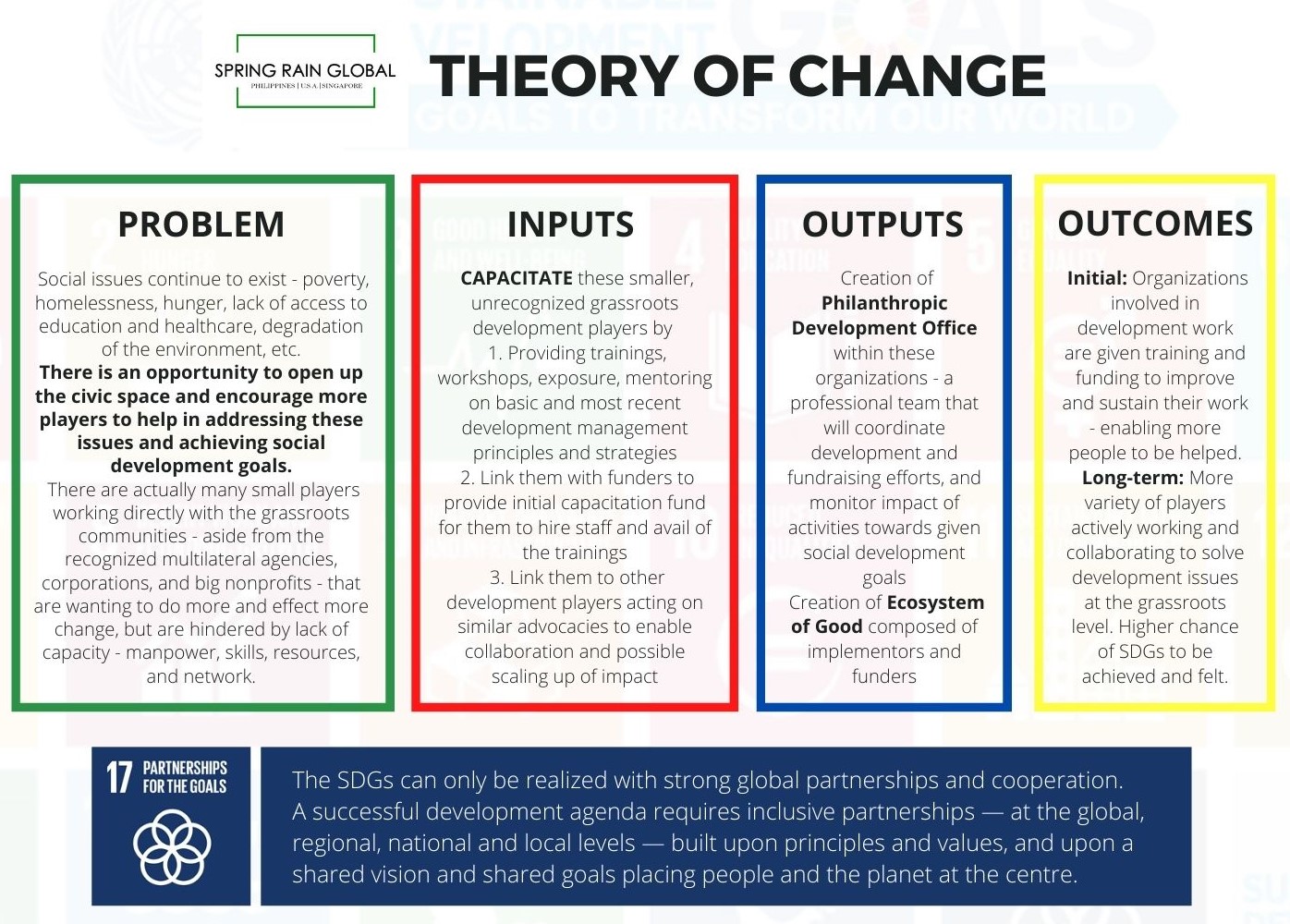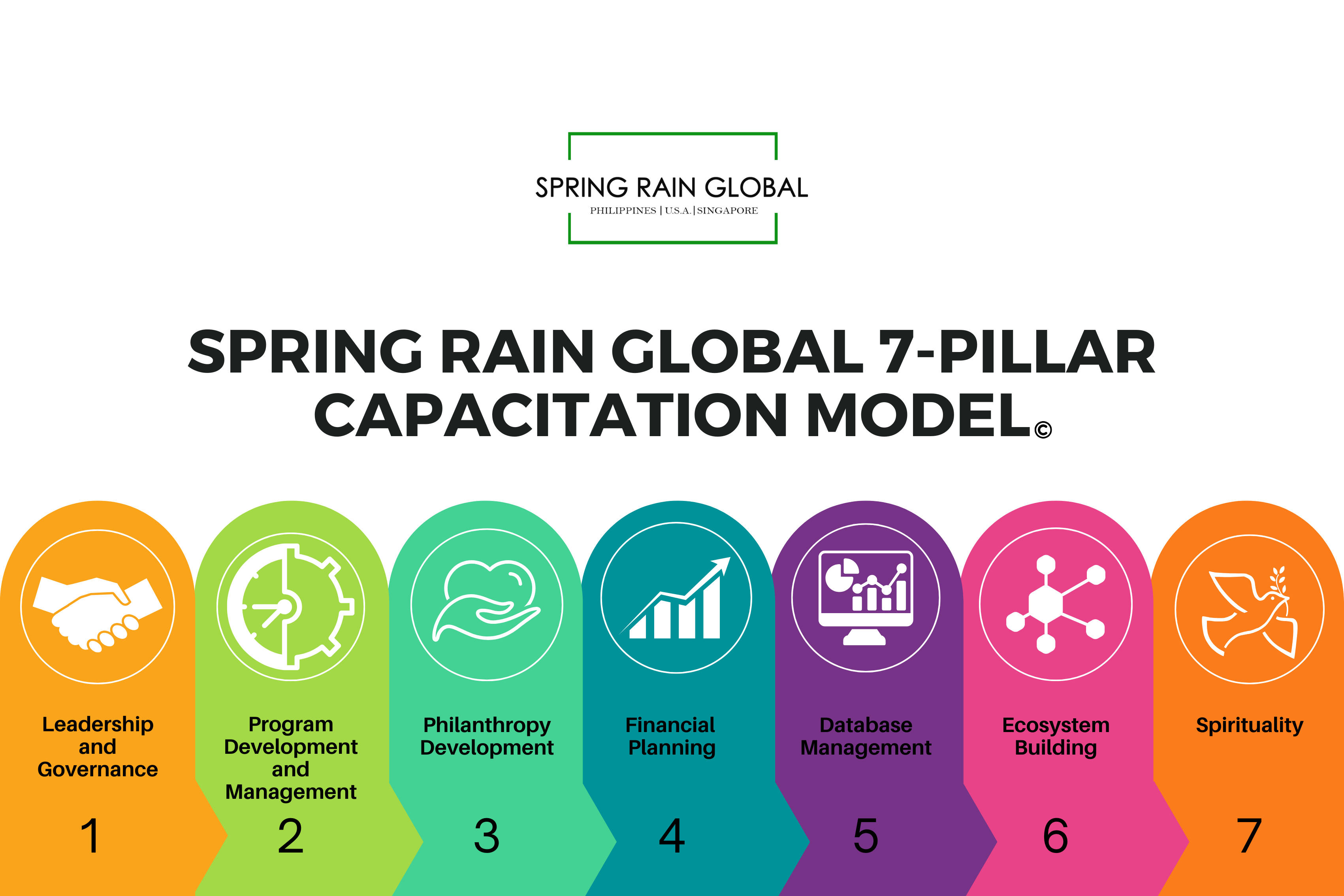BREAKING CYCLES OF POVERTY AT THE GRASSROOTS
At Spring Rain Global, we are devoted to one call to break cycles of poverty in all its forms. We believe that systemic change can only occur if the smallest development player that works at the very grassroots of society is empowered.
In today’s philanthropic landscape, these organizations are typically ignored and their potential to contribute to human development is overlooked and underutilized.
As a social enterprise, we aim to empower and professionalize these organizations, germinating them towards sustainability. We aim to create an ecosystem of good in which PDOs, philanthropists, and others may work together to create sustainable positive impacts in communities.

Spring Rain Global’s
Patented Framework for Growing Missions
Spring Rain Global’s 7-Pillar Capacitation Model© is a proprietary systematic framework that the organization uses to train and empower philanthropic development organizations towards sustainability.
Through this model, we address the urgent social need of the most vulnerable communities by co-creating innovations and life-saving responses with grassroots organizations. Through training, workshops, conferences, mentoring, linkages, and networking opportunities, we help PDOs set up their systems in Leadership and Governance, Program Development and Management, Philanthropy, Financial Planning, Database Management, Ecosystem Building, and Spirituality.
Though diverse in experiences, we are devoted to one call to break cycles of poverty. Innovative in our approach, we create financial and philanthropic road maps for individuals and organizations. We partner with our associate family members, empowering them and journeying with them to attain their goals to financial sustainability. We take one step at a time ultimately contributing to social development.


- Strengthening leadership and governance within the organization. Crafting the organizations’ vision, mission, goals, and strategic directions as their guideposts in every action they undertake;
- Sharpening their advocacies and enhancing their Program development and management systems to ensure that they are truly answering the needs of their constituents and communities;
- Organizing Philanthropic Development Offices to grow awareness and a consistent, reliable support base for their advocacies and programs;
- Developing Financial Roadmaps to help them attain sustainability, resiliency against risks, and constancy in mission;
- Valuing the importance of Data in monitoring and assessing the impact of their programs, and developing and nurturing their relationships with partners and donors.
- Connecting them with each other and to donors through an Ecosystem of Good so they can work collectively, share resources, learn from each other, and ultimately, maximize their impact and, hopefully, achieve their development goals.
- Nurtures organizations’ inner strength by aligning their core values and mission with spiritual growth, fostering compassion and purpose to enhance their impact and unity in serving their communities.
